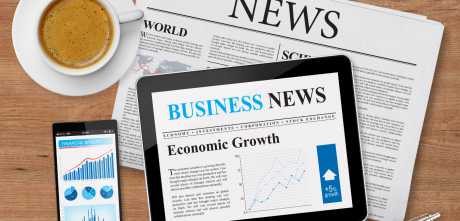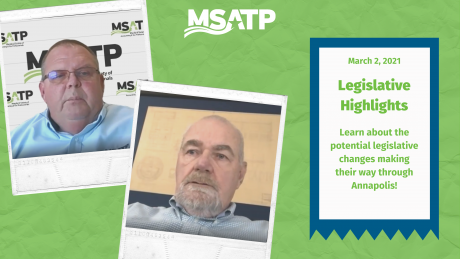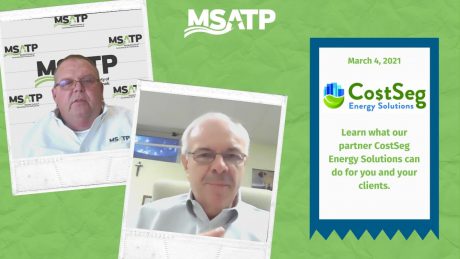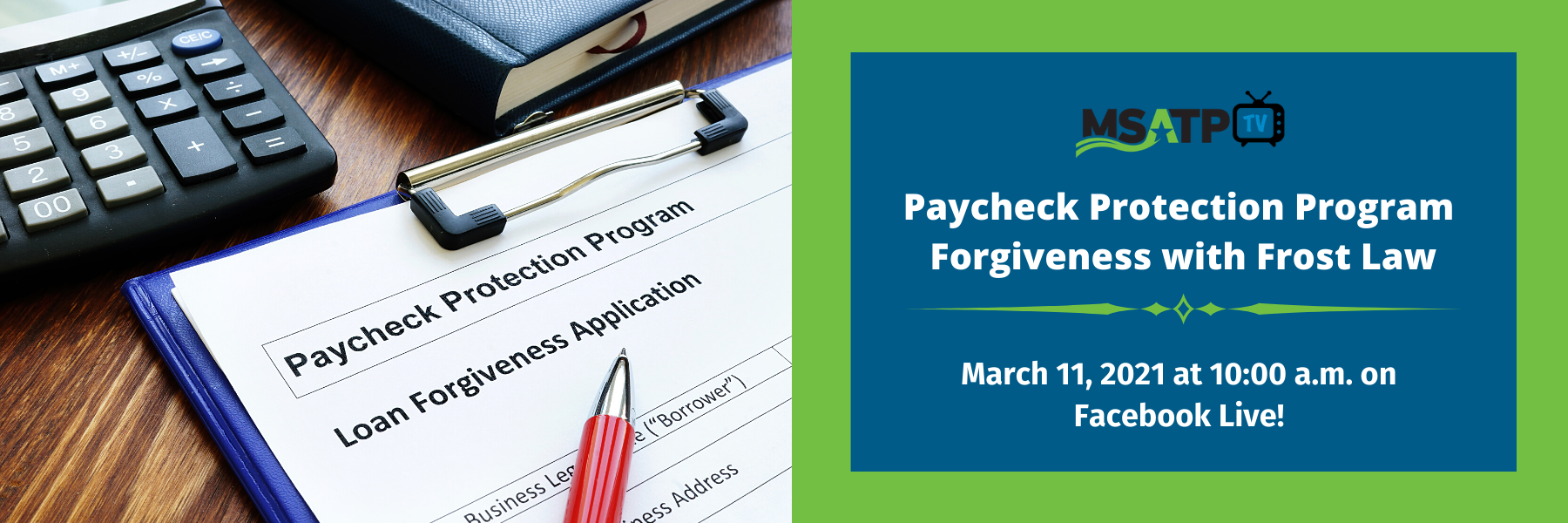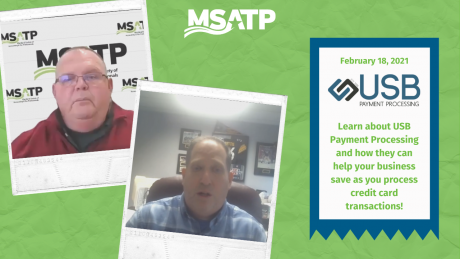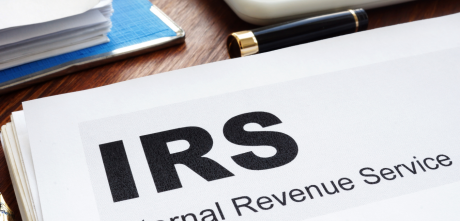
Executive Director Bill Feehley and Paycheck Protection Program (PPP) expert Peter Haukebo of Frost Law provide an update on the program as well as how to handle forgiveness of the loans. Be sure to watch to stay up to date.
Watch on YouTube.

Michael Ashley of Registered Agents joins Executive Director Bill Feehley to discuss how Registered Agents can help with you incorporation needs.
Watch on YouTube.
Passed: American Rescue Plan Act of 2021
On March 10, Congress passed the $1.9 trillion American Rescue Plan Act of 2021 (H.R. 1319), which President Biden was signed into law on March 11th.
As a quick refresher, the legislation makes several important changes to the PPP:
1. Most 501(c) nonprofits will gain access to the Program.
2. The “affiliation rules” will be lifted for 501(c)(3) and 501(c)(6) organizations. This means that an organization’s headcount would be considered “per physical location” rather than in-total and across all locations. As such, a 501(c)(3) with more than 500 employees and/or a 501(c)(6) with more than 300 employees – but at multiple locations – would be eligible for PPP.
3. An additional $7.25 billion will be made available to the PPP.
Unfortunately, the American Rescue Plan Act does not extend the PPP’s current March 31 expiration. Stakeholders across industry continue to press Congress for a plainly necessary extension. POLITICO reports there is strong bipartisan support in the House to extend the Program to May 31.
With the PPP taking $7.25 billion of the $1.9 trillion relief pie, the American Rescue Plan Act includes myriad other provisions to provide further assistance to individuals, families, nonprofits and businesses.
For more information, click here.
Biden Announces PPP Changes Designed to Help Underserved Borrowers
Funding for the federal Paycheck Protection Program (PPP) is scheduled to close on March 31, 2021. About $150 billion in PPP funding remains available.
In February, President Biden announced a series of changes to the PPP intended to make the program more accessible to all small businesses and those who have been left behind in previous relief efforts. Changes include:
· Establishing a 14-day window, starting, February 24th, when only businesses with fewer than 20 employees are eligible to apply to the PPP Program
· Dedicating $1 billion for PPP loans for sole proprietors, independent contractors, and self-employed individuals in low-to-moderate-income areas and revising the loan calculation formula for these applicants
· Eliminating a rule restricting businesses that are at least 20% owned by an individual who was arrested or convicted of a felony related to financial assistance fraud in the previous five years or any other felony within the previous year
· Eliminating a rule restricting businesses that are at least 20% owned by an individual who is delinquent on student debt from receiving PPP loans
· Clarifying that non-citizens may apply using individual taxpayer identification numbers
For more information, click here.
What Employers Need to Know About Repayment of Deferred Payroll Taxes | COVID Tax Tip 2021-32
To give people a needed temporary financial boost, the Coronavirus, Aid, Relief and Economic Security Act allowed employers to defer payment of the employer’s share of Social Security tax. IRS Notice 2020-65 allowed employers to defer withholding and payment of the employee’s Social Security taxes on certain wages paid in calendar year 2020. Employers must pay back these deferred taxes by their applicable dates.
The employee deferral applied to people with less than $4,000 in wages every two weeks, or an equivalent amount for other pay periods. It was optional for most employers, but it was mandatory for federal employees and military service members.
For more information please click here.
Franchot Extends State Income Tax Filing Deadline to July 15 | State, Federal Pandemic Relief Programs Require Extensive Changes to Tax Forms, Updates Anticipated by April 15.
Maryland Comptroller Peter Franchot on March 11 announced that he is extending the state income tax filing deadline by three months until July 15, 2021. No interest or penalties will be assessed if returns are filed and taxes owed are paid by the new deadline.
The extension, which applies to individual, pass-through, fiduciary and corporate income tax returns, including first and second quarter estimated payments, is due to recent and pending legislation at the state and federal levels that impact 2020 tax filings and provide economic relief for taxpayers harmed by the COVID19 pandemic.
To stay up to date and to learn about the availability of revised and new tax forms visit the RELIEF Act Information page on the marylandtaxes.gov website.
If you have any RELIEF questions, call (833) 345-0787 or email ReliefAct@marylandtaxes.gov.
For more information please click here.
Here’s How People Can Request a Copy of Their Previous Tax Return | Tax Tip 2021-33
Taxpayers who didn’t save a copy of their prior year’s tax return, but now need it, have a few options to get the information. Individuals should generally keep copies of their tax returns and any documents for at least three years after they file.
If a taxpayer doesn’t have this information here’s how they can get it:
Ask the software provider or tax preparer
Individuals should first check with their software provider or tax preparer for a copy of their tax return.
Get a tax transcript
If a taxpayer can’t get a copy of a prior year return, then they may order a tax transcript from the IRS. These are free and available for the most current tax year after the IRS has processed the return.
To protect taxpayers’ identities, this document partially hides personally identifiable information such as names, addresses and Social Security numbers. All financial entries, including the filer’s adjusted gross income, are fully visible. People can get them for the past three years, and they need to allow time for delivery.
Tax Time Guide: Didn’t Get Economic Impact Payments? Check Eligibility for Recovery Rebate Credit | IR-2021-49
The Internal Revenue Service reminds first-time filers and those who usually don’t have a federal filing requirement to consider filing a 2020 tax return. They may be eligible to claim the Recovery Rebate Credit, a new refundable credit, authorized by the Coronavirus Aid, Relief, and Economic Security (CARES) Act and the COVID-related Tax Relief Act.
Most individuals eligible for the Recovery Rebate Credit have already received the full amount in two rounds of payments, known as Economic Impact Payments. All legally permitted first and second Economic Impact Payments have been issued.
For more information please click here.
Here’s What Taxpayers Should Do If They Have Missing or Incorrect Documents| Tax Tip 2021-26
Taxpayers should double-check to make sure they have all their documents before filing a tax return.
Taxpayers who haven’t received a W-2 or Form 1099 should contact the employer, payer or issuing agency and request the missing documents. This also applies for those who received an incorrect W-2 or Form 1099.
If they can’t get the forms, they must still file their tax return on time. To avoid filing an incomplete or amended return, they may need to use Form 4852, Substitute for Form W-2, Wage and Tax Statement or Form 1099-R, Distributions From Pensions, Annuities, Retirement or Profit-Sharing Plans, IRAs, Insurance Contracts, etc.
For more information please click here.
Multiple Taxes: RELIEF Act Discussed
The Maryland Comptroller has issued a Tax Alert discussing the recently enacted Recovery for the Economy, Livelihoods, Industries, Entrepreneurs, and Families (RELIEF) Act, which provides income and sales tax relief. (TAXDAY, 2021/02/17, S.5 ; TAXDAY, 2021/02/17, S.6 ) Corporate Income Subtraction for Coronavirus Relief Payments Under the Act, businesses may subtract coronavirus relief payments on their Maryland return. Coronavirus relief payments includes grants or loans applied for after…
To continue reading please click here.
Maryland RELIEF Act Support for Businesses
With the passage of the RELIEF act of 2021 by the Maryland General Assembly, new COVID-19 relief will soon be made available for certain Maryland businesses through the Maryland Department of Commerce. They anticipate accepting initial applications for the new funding in mid-March and will update their website as details about these Commerce programs become available.
The funding will be targeted toward certain groups of businesses including:
- $10 million for businesses who do not collect sales tax and can demonstrate a need for assistance
- $500,000 for businesses seeking to set up online sales or help employees telework
- $10 million for small, minority and women-owned businesses
- $8 million for private commuter bus operators and local transit systems
Visit the business resources website for additional funding available and the latest information.
What’s in the Federal Stimulus Package for Marylanders?
On Wednesday, the House approved the final version of President Biden’s $1.9 trillion coronavirus relief bill including $1,400 stimulus checks, massive expansions to the federal tax credits and nearly $6.4 billion in direct funding for Maryland’s state and local governments.
More than 2.5 million Maryland households would get direct stimulus payments of up to $1,400, totaling $6.25 billion flowing into Marylanders’ wallets. The stimulus bill also expands the child tax credit benefiting 1.1 million children and lifting more than 52,000 children out of poverty, according to Senators Van Hollen and Cardin.
Under the new bill, Maryland will also receive a total of $6.35 billion in aid for state and local governments, with $3.87 billion of that funding directed towards emergency services, vaccine distribution and other needs.
To read more, please click here.
State Legislators Want Role in Maryland’s Stimulus Spending
As the U.S House passed the $1.9 trillion federal stimulus plan on Wednesday, the Maryland House temporarily slowed work on the state budget, giving appropriators time to understand the flood of federal money headed to the state. The House Appropriations Committee, which is leading the charge on the passage of Maryland’s 2022 budget, delayed a meeting on final budget decisions to allow top legislators to work with Governor Hogan on guiding the federal stimulus spending.
To read more, please click here.

Child Tax Credit and Expansion of the Earned Income Credit
SB0218 was introduced in this year’s Maryland General Assembly and was passed by both the Senate and House. It was Enacted Under Article II, Section 17(b) of the Maryland Constitution as Chapter 40.
This emergency bill expands eligibility of the State and local earned income tax credits and thereby the State and local poverty level credits, by allowing a taxpayer to claim the tax credit notwithstanding certain federal requirements.
The bill also creates a refundable credit against the State income tax equal to $500 for each dependent child who is a qualified dependent under Section 152 of the Internal Revenue Code and is under the age of 17 years and has a disability. In order to qualify, a taxpayer must have a federal adjusted gross income of $6,000 or less. The credit is reduced by the amount of any federal child tax credit claimed for the child in the year. This bill applies to tax years 2020 through 2022 and terminates June 30, 2023.


